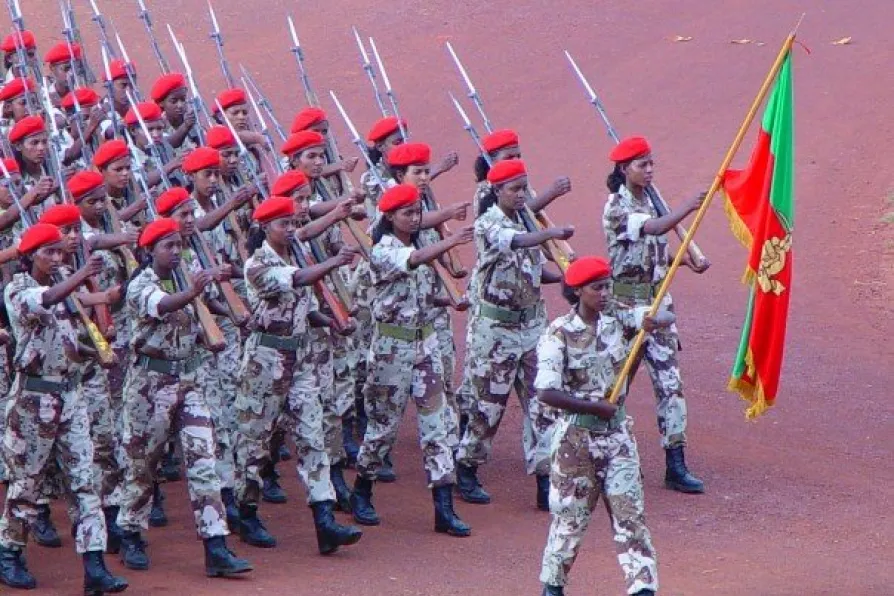Cuba, despite the privations, remains a beacon of sovereignty and resistance to imperialism, writes BERNARD REGAN

 Eritrean female soldiers
[Temesgen Woldezion / Creative Commons]
Eritrean female soldiers
[Temesgen Woldezion / Creative Commons]
AARON arrived in Britain as a refugee from Eritrea a year ago. The young asylum-seeker did not want to go into detail about why he fled his home in East Africa. Instead, he tells me in general terms what it’s like to live under one of the world’s harshest dictatorships.
“At any point, you can be forcibly removed from your life, everything you know … and forced to become a soldier,” he says, speaking through an interpreter. Growing up, Aaron saw his friends, neighbours and relatives disappear into Eritrea’s system of indefinite national conscription.
“When you are a certain age, you see people forcibly taken to Sawa,” he says, referring to the military training camp where young Eritreans are taken to spend their final year of school. “It’s a place where they go to mould you to be a slave … not to rebel in any way and not be allowed to think or question. You see a lot of violence before it gets to you, and that’s so that you don’t dissent.”
Since the border war with Ethiopia in the late 1990s, Eritrea’s dictator Isaias Afwerki and the ruling Popular Front for Democracy and Justice (PFDJ) — the only party permitted to exist in Eritrea — has used indefinite army service to control its population. Conscripts are subjected to forced labour, the UN has reported, that “effectively abuses, exploits and enslaves them for years.”
For the past two years, recruits have been sent over the border to fight in Ethiopia’s northern Tigray region, where a bloody civil war has killed over half a million people. To maintain the war effort, this year Eritrea escalated its recruitment drive, with even children and the elderly rounded up to fight.














